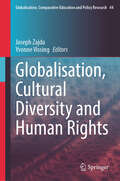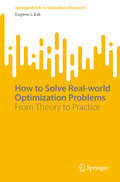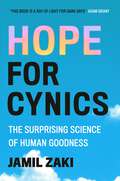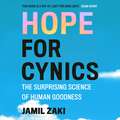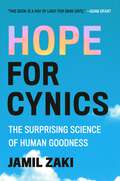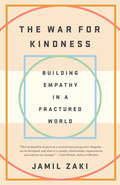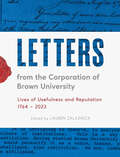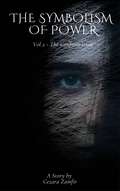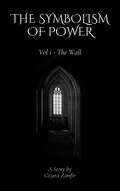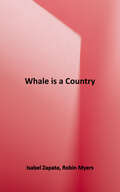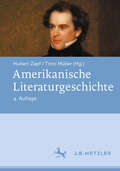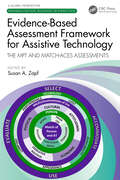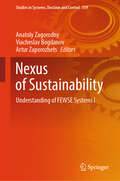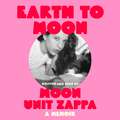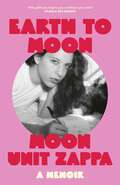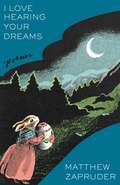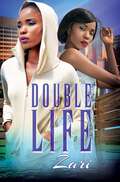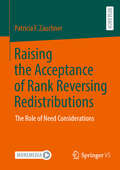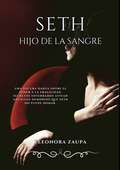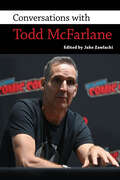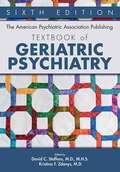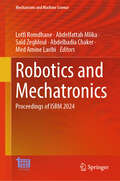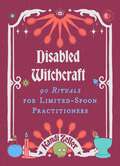- Table View
- List View
Globalisation, Cultural Diversity and Human Rights (Globalisation, Comparative Education and Policy Research #44)
by Joseph Zajda Yvonne VissingThis book analyses major discourses of cultural diversity and human rights. The chapters contained in this book examine critically major issues confronting cultural diversity and human rights, both locally and globally. They analyze the challenges that different societies are confronted with, as they attempt to implement, protect and defend cultural diversity and human rights in an ever-changing world, and culturally diverse environment. Topics covered include celebrating cultural diversity in sport, human rights legacies of the African slave trade and the long-term implications of colonialism, assessment of human rights and sports, effectiveness in intercultural dialogue in dominant discourses of cultural diversity and human rights, and the rising importance of cultural diversity and human rights in sport for children and youth.This book will be helpful to readers to explore their own views and consider more broadly what may be in the best interests of a fair and just society, as envisioned in human rights treaties, human rights education in schools, and cultural diversity.
How to Solve Real-world Optimization Problems: From Theory to Practice (SpringerBriefs in Operations Research)
by Eugene J. ZakWritten by an experienced operations research practitioner with a strong applied mathematics background, this book offers practical insights into how to approach optimization problems, how to develop intelligent and efficient mathematical models and algorithms, and how to implement and deliver software products to customers. With a focus on revealing the similarities and differences between academia and industry in mathematical modeling, the book provides useful tips and advice based on the author’s extensive experience as a principal developer working to solve real-world optimization problems for several major high-tech companies.The book offers valuable food for thought for researchers and practical guidance for graduate students preparing for their future projects in the industry. It is also an essential resource for practitioners working in the industrial, business, and service sectors.
Hope for Cynics: The Surprising Science Of Human Goodness
by Jamil ZakiCynicism is making us sick; Stanford psychologist Dr Jamil Zaki has the cure - a 'ray of light for dark days' (Adam Grant, #1 New York Times bestselling author).For thousands of years, people have argued about whether humanity is selfish or generous, cruel or kind. But recently, our answers have changed. In 1972, half of Americans agreed that most people can be trusted; by 2018, that figure had fallen to 30%. Different generations, genders, religions and political parties can't seem to agree on anything, except that they all think human virtue is evaporating. Cynicism is a perfectly understandable response to a world full of injustice and inequality. But in many cases, cynicism is misplaced. Dozens of studies find that people fail to realise how kind, generous and open-minded others really are. And cynical thinking worsens social problems, because our beliefs don't just interpret the world; they change it. When we expect people to be awful, we coax awfulness out of them. Cynicism is a disease, with a history, symptoms and a cure. Through science and storytelling, Jamil Zaki imparts the secret for beating back cynicism: hopeful scepticism. This approach doesn't mean putting our faith in every politician or influencer. It means thinking critically about people and our problems, while simultaneously acknowledging and encouraging our strengths. Far from being naïve, hopeful scepticism is a more precise way of understanding others, and paying closer attention re-balances how you think about human nature. As more of us do this, we can take steps towards building the world we truly want.
Hope for Cynics: The Surprising Science Of Human Goodness
by Jamil ZakiCynicism is making us sick; Stanford psychologist Dr Jamil Zaki has the cure - a 'ray of light for dark days' (Adam Grant, #1 New York Times bestselling author).For thousands of years, people have argued about whether humanity is selfish or generous, cruel or kind. But recently, our answers have changed. In 1972, half of Americans agreed that most people can be trusted; by 2018, that figure had fallen to 30%. Different generations, genders, religions and political parties can't seem to agree on anything, except that they all think human virtue is evaporating. Cynicism is a perfectly understandable response to a world full of injustice and inequality. But in many cases, cynicism is misplaced. Dozens of studies find that people fail to realise how kind, generous and open-minded others really are. And cynical thinking worsens social problems, because our beliefs don't just interpret the world; they change it. When we expect people to be awful, we coax awfulness out of them. Cynicism is a disease, with a history, symptoms and a cure. Through science and storytelling, Jamil Zaki imparts the secret for beating back cynicism: hopeful scepticism. This approach doesn't mean putting our faith in every politician or influencer. It means thinking critically about people and our problems, while simultaneously acknowledging and encouraging our strengths. Far from being naïve, hopeful scepticism is a more precise way of understanding others, and paying closer attention re-balances how you think about human nature. As more of us do this, we can take steps towards building the world we truly want.
Hope for Cynics: The Surprising Science of Human Goodness
by Jamil ZakiCynicism is making us sick; Stanford Psychologist Dr. Jamil Zaki has the cure—a &“ray of light for dark days&” (Adam Grant, #1 New York Times bestselling author). In 1972, half of Americans agreed that most people can be trusted; by 2018, only a third did. Different generations, genders, religions, and political parties all think human virtue is evaporating. Cynicism is an understandable response to a world full of injustice and inequality. But in many cases, it is misplaced. Dozens of studies find that people fail to realize how kind, generous, and open-minded others really are. Cynical thinking deepens social problems: when we expect the worst in people, we often bring it out of them. We don&’t have to remain stuck in this cynicism trap. Through science and storytelling, Jamil Zaki imparts the secret for beating back cynicism: hopeful skepticism—thinking critically about people and our problems, while honoring and encouraging our strengths. Far from being naïve, hopeful skepticism is a precise way of understanding others that can rebalance our view of human nature and help us build the world we truly want.
The War for Kindness: Building Empathy in a Fractured World
by Jamil Zaki&“In this masterpiece, Jamil Zaki weaves together the very latest science with stories that will stay in your heart forever.&”—Angela Duckworth, author of GritDon&’t miss Jamil Zaki&’s TED Talk, &“We&’re experiencing an empathy shortage, but we can fix it together,&” online now. Empathy is in short supply. We struggle to understand people who aren&’t like us, but find it easy to hate them. Studies show that we are less caring than we were even thirty years ago. In 2006, Barack Obama said that the United States was suffering from an &“empathy deficit.&” Since then, things seem to have only gotten worse. It doesn&’t have to be this way. In this groundbreaking book, Jamil Zaki shares cutting-edge research, including experiments from his own lab, showing that empathy is not a fixed trait—something we&’re born with or not—but rather a skill that can be strengthened through effort. He also tells the stories of people who embody this new perspective, fighting for kindness in the most difficult of circumstances. We meet a former neo-Nazi who is now helping to extract people from hate groups, ex-prisoners discussing novels with the judge who sentenced them, Washington police officers changing their culture to decrease violence among their ranks, and NICU nurses fine-tuning their empathy so that they don&’t succumb to burnout. Written with clarity and passion, The War for Kindness is an inspiring call to action. The future may depend on whether we accept the challenge.Praise for The War for Kindness&“A wide-ranging practical guide to making the world better.&”—NPR&“Relating anecdotes and test cases from his fellow researchers, news events and the imaginary world of literature and entertainment, Zaki makes a vital case for &‘fighting for kindness.&’ . . . If he&’s right—and after reading The War for Kindness, you&’ll probably think so—Zaki&’s work is right on time.&” —San Francisco Chronicle&“In this landmark book, Jamil Zaki gives us a revolutionary perspective on empathy: Empathy can be developed, and, when it is, people, relationships, organizations, and cultures are changed.&”—Carol Dweck, author of Mindset
Coherence in European Teacher Education: Theoretical Models, Empirical Studies, Instructional Approaches
by Katja Zaki Gerard Doetjes Vlatka Domović Mirjamaija Mikkilä-ErdmannThis Open Access volume brings together contributions to the research on coherence in teacher education from a transnational perspective. Using theoretical-conceptional, empirical as well as instructional approaches, the contributions explore structural, curricular, conceptual and personnel dimensions of coherence. Within the EU Erasmus +-funded project ConnEcTEd (Coherence in European Teacher Education), an interdisciplinary and transnational consortium collaborated in the research and co-constructive development of coherent teaching and learning arrangements. The transnational team assessed links between different areas of professional knowledges as well as theory-practice approaches. The volume concludes with a final discussion by Esther T. Canrinus, one of the leading researchers on coherence in teacher education.
Letters from the Corporation of Brown University: Lives of Usefulness and Reputation, 1764 - 2023
by Lauren Zalaznick"A profound and captivating chronicle of American higher education seen through the eyes of those at its helm . . . it's a must-read." —Xochitl Gonzalez, New York Times bestselling author of Olga Dies Dreaming and Anita de Monte Laughs Last"It's moving to see all these civic-minded people—so many of them people who'd felt like outsiders when they arrived as students—joining together in common cause. What a powerful experience they all seemed to have had!" —Ira Glass, Host and Executive Producer of This American LifeFrom the archives of Brown University, this collection of letters tells a story of progress and passion in American higher education from a never-before-seen perspective. Since the school's founding, the trustees and fellows of the Corporation of Brown University have written resignation letters as they complete their terms. From the quill-and-ink manuscripts of Brown's founders to the emails of today, the letters are wise, witty, and heartfelt. Many also reflect the country's social, cultural, and political transformations. Presented as a curated collection for the first time, these letters from members of Brown's highest governing body provide a unique glimpse into the evolution of the institution's enduring traditions and help inform our perspectives on the range of issues with which the University still grapples. The Corporation members' personal reflections yield insights into what it means to lead through societal changes, helping to build bridges to future generations. This rich tapestry of accounts spans more than two and a half centuries from 1764 to 2023. It includes an entry from a trustee who was admitted as an undergraduate despite being unable to even afford the application fee; reflections from another who spearheaded the adoption of Brown's groundbreaking Open Curriculum; and several letters from "firsts," including the first woman to serve as an Alumnae Trustee. This is a book designed to be looked at, as well as read. Many of the letters are textured reproductions, from original manuscripts to "modern" faxes. Others are accompanied by archival photos of the seminal events they describe from commencements to campus protests. All present a previously untold story about the leaders of one of the country's oldest and most influential institutions. These profound, human stories speak to the grand ambition of leading "lives of usefulness and reputation," as set forth in the preamble to the University's Charter of 1764. The ultimate power of the collection comes from recognizing that we cannot know each other's stories until we take the time to listen.
The Confrontation (The Symbolism of Power #2)
by Cezara ZamfirTwo worlds separated for more than 1000 years, unaware of each other and yet rediscovered by coincidence. However, due to the violation of an ancient peace treaty, the worlds find themselves on the brink of a new war. The Crowd starts the fight against the Society hoping that its ingenuity will beat the latter's technology. Rulers fall from power, are betrayed and killed, shadows hide enemies in benevolent faces, and Earth once again tastes the blood of the innocent until finally the twins and Tim return to the Crowd to put an end to the carnage. The three discover another side to the gentle Eulice - mother of the twins Castor and Hera - who offers Tim a deadly test for the humans to prove their humanity. All eyes are on him. Will he choose to take the test or be expelled from the land of the Crowd?
The Wall (The Symbolism of Power #1)
by Cezara ZamfirTim, an eighteen year old teenager, lives a relatively normal life with his parents in an area called the Society, which is governed by a set of rules called the System. This world set at the beginning of the fourth millennium is one of the few habitable territories on Earth due to the devastation of World War III. Tim discovers that an impressively high wall stretches across the area, which he manages to pass through, and together with Hera and Castor - his new friends - he sets out on a quest for truth, making both friends and enemies, plotting and experiencing the political, spiritual and historical dimension of the Crowd, the world beyond the Wall. Faced with the confrontation of the two worlds, one question arises: will the truth emerge before the Crowd is destroyed?
A Whale Is a Country
by Isabel ZapataThe debut English language poetry collection by noted Mexican author Isabel Zapata, A Whale is a Country explores humanity's relationship to the natural world through a multitude of poignant angles.
Amerikanische Literaturgeschichte
by Hubert Zapf Timo MüllerIn der 4. Auflage ist das Buch umfassend neu konzipiert worden. Neben den Kapiteln von den Puritanern bis zur Postmoderne, die als Klassiker in der Amerikanistik gelten und nur wenig verändert beibehalten werden, sind alle anderen Kapitel entweder neu geschrieben oder stark revidiert worden. Die ausführlichen Porträts der indigenen und der Latino/a-Literatur, der afro- und asiatisch-amerikanischen Literatur tragen der ausgeprägten Diversität der literarischen Kultur der USA Rechnung. Kernstück ist ein ganz neu verfasstes, umfangreiches Kapitel zur Literatur der Gegenwart.
Evidence-Based Assessment Framework for Assistive Technology: The MPT and MATCH-ACES Assessments (Rehabilitation Science in Practice Series)
by Susan A. ZapfThe primary focus of this book is to educate the reader on the Matching Person and Technology (MPT) model and assessment process that will guide the reader on consumer-centered assistive technology assessment and outcome measures designed to be used for individuals of all ages and all types of disabilities. The first section of the book introduces the MPT and Matching Assistive Technology and CHild (MATCH) assessment process and discusses key documents that align with the assessments including the International Classification of Functioning, Disability, and Health and the Occupational Therapy Framework III.The second section of the book focuses on the international emphasis of the MPT and MATCH assessments. At present, there are eight countries that are represented in this section. Each chapter includes information on the assessment translations (with access to copies if available or at least access on how to obtain copies). The authors discuss research on the use of the assessment within their country to support the assessment use. Lastly, a case scenario is discussed in each chapter to provide the reader with an example of how the assessment was used with an actual consumer. The last section of the book includes a focus on outcome studies in the areas of early childhood, education (primary secondary, and postsecondary), work, and functional independence. This section provides the reader insight into how to outline outcome measures within the MPT and MATCH process. There is an additional section on future works that includes a brief introduction to the Service Animal Adaptive Intervention Assessment.This book is targeted to the Assistive Technology Providers (ATP) and policymakers (health care, education, and rehabilitation engineering), the university student pursuing a career in these areas, and the consumer of assistive technology.
Nexus of Sustainability: Understanding of FEWSE Systems І (Studies in Systems, Decision and Control #559)
by Artur Zaporozhets Viacheslav Bogdanov Anatoly ZagorodnyThe intricate interplay between food, energy, water, societal dynamics, and the environment constitutes the bedrock of contemporary global challenges. In recent decades, this convergence has emerged as a focal point for scientific inquiry, policy formulation, and societal discourse. This book seeks to meticulously unravel the complexities inherent in this nexus, shedding profound light on the interconnected risks, vulnerabilities, and transformative opportunities that define our quest for sustainability in the twenty-first century. The materials of this book were prepared mainly by authors working on the joint project between the International Institute for Applied Systems Analysis (IIASA) and the National Academy of Sciences (NAS) of Ukraine “Integrated robust modeling and management of food-energy-water-land use nexus for sustainable development”, and on the project “Comprehensive analysis of robust preventive and adaptive measures of food, energy, water, and social management in the context of systemic risks and consequences of COVID-19” (0122U000552) of the NAS of Ukraine. Members of the System Analysis Committee of the NAS of Ukraine were also involved in the preparation of book chapters. The authors dedicate this book to the memory of the Academician of NAS of Ukraine, Professor Yuri Ermoliev, who died in October 2022 and made a fundamental contribution to stochastic optimization as a basic tool for quantitative risk management. This book largely follows his ideas about risk management and its applications.
Earth to Moon
by Moon Unit ZappaThe saying goes that "God only gives you what you can handle." Well God didn't grow up in my atheist, Wiccan, fame-laden, oversexed, teetotalling, drug-free, cloistered, chaotic, non-communicative, workaholic, feral-feeling house.'For Moon Unit, daughter of musician Frank Zappa and his 'manager', Gail, processing a life so unique, so punctuated by the whims of creative urges, the tastes of popular culture and the calculus of celebrity, has at times been eviscerating. But it is her deep sense of humour and unshakeable humility that keeps her - and this memoir - pinned to the ground.A child-star at age 14 after her accidental international hit single (recorded with her father), 'Valley Girl', turned her into a reluctant celebrity, Moon Unit Zappa's life has been utterly extraordinary from her birth in 1967 into a family that was already blessed/cursed as music royalty thanks to the acknowledged genius of Frank. But what are the consequences of growing up in a family who spend most of their time naked arguing about sexual/extra-marital liaisons and practising white magic in a free-for-all state of nonconformist, virtuoso abandon?Earth to Moon is a reckoning with self-esteem, the ghosts of the past and a mother and a father who, in the process of leaving their mark upon on the world, scarred their first daughter on home soil. Brutally self-deprecating and funny as hell, it belies a rose-tinted perspective on the 70s and 80s west coast American scene, from within the belly of the beast of the rock and roll world.
Earth to Moon
by Moon Unit ZappaThe saying goes that "God only gives you what you can handle." Well God didn't grow up in my atheist, Wiccan, fame-laden, oversexed, teetotalling, drug-free, cloistered, chaotic, non-communicative, workaholic, feral-feeling house.'For Moon Unit, daughter of musician Frank Zappa and his 'manager', Gail, processing a life so unique, so punctuated by the whims of creative urges, the tastes of popular culture and the calculus of celebrity, has at times been eviscerating. But it is her deep sense of humour and unshakeable humility that keeps her - and this memoir - pinned to the ground.A child-star at age 14 after her accidental international hit single (recorded with her father), 'Valley Girl', turned her into a reluctant celebrity, Moon Unit Zappa's life has been utterly extraordinary from her birth in 1967 into a family that was already blessed/cursed as music royalty thanks to the acknowledged genius of Frank. But what are the consequences of growing up in a family who spend most of their time naked arguing about sexual/extra-marital liaisons and practising white magic in a free-for-all state of nonconformist, virtuoso abandon?Earth to Moon is a reckoning with self-esteem, the ghosts of the past and a mother and a father who, in the process of leaving their mark upon on the world, scarred their first daughter on home soil. Brutally self-deprecating and funny as hell, it belies a rose-tinted perspective on the 70s and 80s west coast American scene, from within the belly of the beast of the rock and roll world.
I Love Hearing Your Dreams: Poems
by Matthew ZapruderFrom one of contemporary poetry&’s most playful and original minds, an enchanting and harrowing journey through the landscape of dreams and twenty-first century hopes and disillusions.&“Your dreams have no hidden agenda to be wise they are made to be forgotten so something can be known&” I Love Hearing Your Dreams is a book of reveries, of failed elegies, of &“the last time that things were real&” and the moments that come afterward. These are dream songs for an age of insomnia, where the poet is always awake &“at that oddest hour / that does not end, / the crooked, unnumbered one&” and the future seems to be &“just the past in a suit / that will never be in style.&” Yet dreams in Matthew Zapruder&’s poems are also a place of possibility, of reality envisioned anew—sleep shows us not merely what the world is, but what it could be. From a poet celebrated for his &“razor eye for the remnants and revenants of modern culture&” (The New York Times), I Love Hearing Your Dreams is a startlingly beautiful and deeply vulnerable book where lives journey into a mystifying place and emerge transformed.
Double Life
by ZariFor the past ten years, Alexis Fox had been living a double life. She is a successful real estate agent and investor by day and a drug queenpin known as Diamond by night. But everything changes after the murder of her right-hand man, Hedrick, causing her two worlds to collide. As a result, she was forced to assume a more hands-on role in her illicit side business, and for the first time, the drug life was beginning to creep into her real life. Consequently, her already contentious working relationship with Cynthia, the manager at her real estate office, becomes antagonistic, forcing her to wonder if there was more to it than just jealousy. When several of Diamond's people turn up dead, things become more complicated for her when her police contact tells her that her own alter ego, Alexis, is a person of interest in one of their deaths. It causes her to question which life was real—or if it was all her life now.
Raising the Acceptance of Rank Reversing Redistributions: The Role of Need Considerations
by Patricia F. ZauchnerRedistribution is a major objective of welfare states. In certain cases, redistribution not only reduces the financial differences between some individuals or groups but also changes their positions in a financial ranking. Prior studies have indicated that such rank reversals can reduce support for redistribution. This book addresses this issue by arguing that if redistribution is aimed at meeting needs rather than promoting equality, the negative effect of rank reversals on the acceptance of redistribution can be reduced. The argument is first supported by a theoretical exploration, which, among others, endeavors to incorporate a no-reranking principle into the well-established list of distributive justice principles. It shows that although individuals may apply the no-reranking principle, the principle is normatively weak, especially compared to the need principle. The argument is further supported by evidence from an online third-party dictator game in which each decision-maker had to redistribute money between two other participants. It varied whether those participants were above or below a specific needs threshold and whether a transfer would reverse ranks or not. The results showed that when redistribution was required to satisfy the poorer person’s needs, the negative effect of rank reversals on the acceptance of redistribution almost vanished.
Seth: Hijo de la sangre
by Eleonora ZaupaSeth no es como los demás y él lo sabe. Vive con la intención de eliminar a todos los cazadores y no escatima en sus perversiones. Convencida de que el mundo es suyo, convencida de que él es omnipotente, Samantha será quien sacuda todas sus creencias. Porque ella no debería existir, debería estar muerta. Seth estará obsesionado con esa chica, intentará descubrir sus secretos, porque ella sabe ocultarlos bien. En cualquier caso, resulta ser sólo un obstáculo porque encontrar a Avery tiene prioridad sobre todo; su alianza con un humano corre el riesgo de poner en peligro la vida de Seth.
Conversations with Todd McFarlane (Conversations with Comic Artists Series)
by Jake ZawlackiOver thirty years after his initial ascent to super stardom, Todd McFarlane (b. 1961) remains one of the most popular and contentious comic artists ever. The interviews compiled in this volume offer a nuanced portrait of McFarlane’s polarizing character. Beginning with his earliest days on Spider-Man to the months before the hotly anticipated release of Spawn and ending with his writing ventures decades later, the interviews offer compelling perspectives from the renowned creator.As the most vocal representative of Image Comics, McFarlane, alongside Jim Lee, Rob Liefeld, Erik Larsen, Jim Valentino, Marc Silvestri, and Whilce Portacio, was a veritable rock star. Eager fans swarmed into lengthy lines around comic book stores and conventions, waiting for their chance at a thirty-second autograph. This book offers a glimpse into the comic book world of the early 1990s, a world rampant with variant covers, impossibly exaggerated bodies, and wild speculation about what would be the next comic to explode in value. The volume also includes the momentous public debate between McFarlane and Peter David, former collaborator on The Incredible Hulk, moderated by the late George Pérez at a standing-room-only event at ComicsFest in 1993. While this world sounds almost inconceivable to the comic book fan of today, it was the milieu in which McFarlane rose to stardom and excelled like no other, leaving his mark on the medium forever.
The American Psychiatric Association Publishing Textbook Of Geriatric Psychiatry
by Kristina F. Zdanys David C. SteffensOver the course of more than two decades and five previous editions, The American Psychiatric Association Publishing Textbook of Geriatric Psychiatry has established itself as a foundational resource in the field. This new edition retains the multidisciplinary and developmental perspectives of its predecessors, drawing on the knowledge not only of psychiatrists but also of relevant biomedical and behavioral experts in order to present the most comprehensive approach to patient care. It has been extensively updated to reflect the latest scientific advances and clinical developments in the field. Not only will readers find the most up-to-date information on phenomenology, diagnosis, and assessment of late-life mental disorders, they will also access the latest research on psychotherapeutic, psychopharmacological, and other somatic treatments. A dedicated chapter delves into the role of technology―including digital phenotyping, wearables, digital and Web-based neurocognitive testing, and more―in aiding the geriatric mental health workforce and improving both access to care and ongoing support. Throughout the book, several sections also candidly examine the impact of COVID-19, and its attendant social isolation, on older adult mental health and the evolution of treatment approaches, revealing insights learned about telepsychiatry and care in nursing homes during the pandemic. Chapters on the legal and ethical factors in the psychiatric care of older adults close out the book, the most exhaustive on the topic. Extensively researched and with key points for ease of reference, this edition will equip both the scholar and the clinician with the current state of scientific understanding as well as the practical skills and knowledge base required for dealing with mental disorders in late life.
Robotics and Mechatronics: Proceedings of ISRM 2024 (Mechanisms and Machine Science #158)
by Saïd Zeghloul Med Amine Laribi Lotfi Romdhane Abdelfattah Mlika Abdelbadia ChakerGathering the proceedings of the 8th IFToMM International Symposium on Robotics and Mechatronics (ISRM), held in Djerba, Tunisia, on April 17-19, 2024, this volume covers topics in the broad range of topics related to robotics and mechatronics such as mechanism design, modeling and simulation, kinematics and dynamics of multibody systems, navigation and motion planning, wireless sensors and wearable devices, biomechanics and bio-robotics, micro/nano-robotics, complex robotic systems, walking machines, humanoids, smart devices. The proceedings extend this platform to all researchers, scientists, industry experts, and students interested in these fields.
Dearborn
by Ghassan ZeineddineWinner of the 2023 Khayrallah Book Prize Finalist for the 2024 CLMP Firecracker Award for Debut Fiction Shortlisted for the 2024 William Saroyan International Prize for Writing A Washington Post Best Book of September • Named a Best Book of the Year at Electric Lit, Chicago Public Library, Powell’s, and Kirkus Reviews “Sly, straight-faced, tenderly wicked. . . . A classic American short story collection.”—Michael Chabon A sharp, tender, and uproariously funny portrait of the lives of Arab American community members in Dearborn, Michigan. Spanning several decades, Ghassan Zeineddine’s debut collection examines the diverse range and complexities of the Arab American community in Dearborn, Michigan. In ten tragicomic stories, Zeineddine explores themes of identity, generational conflicts, war trauma, migration, sexuality, queerness, home and belonging, and more. In Dearborn, a father teaches his son how to cheat the IRS and hide their cash earnings inside of frozen chickens. Tensions heighten within a close-knit group of couples when a mysterious man begins to frequent the local gym pool, dressed in Speedos printed with nostalgic images of Lebanon. And a failed stage actor attempts to drive a young Lebanese man with ambitions of becoming a Hollywood action hero to LA, but Immigration and Customs Enforcement agents have other plans. By turns wildly funny, incisive, and deeply moving, Dearborn introduces readers to an arresting new voice in contemporary fiction and invites us all to consider what it means to be part of a place and community, and how it is that we help one another survive.
Disabled Witchcraft: 90 Rituals for Limited-Spoon Practitioners
by Kandi ZellerMagick is all around us and should be for everyone. But the practices in many witchcraft books can be difficult for many of us to perform due to chronic illnesses, sensory issues, allergies, or other disabilities—and the financial limitations that often go hand in hand with them. In this guide, disabled witch Kandi Zeller sets out to change that. Through 90 inclusive (and sometimes spicy) magickal rituals designed for witches with disabilities of all kinds—especially the invisible ones—Disabled Witchcraft lays out a truly accessible magickal practice with a solid dose of humor and heart. If your spoons (aka available energy and executive function) are limited on any given day, that doesn't need to be a hindrance to following your spiritual path. From guidance on using crystals for nervous-system regulation to tarot readings for spoonies to laying a curse upon unjust health systems, you'll find practical tools to harness the magick of your disabilities, fight both ableism and capitalism, and embrace a more expansive version of the path.
